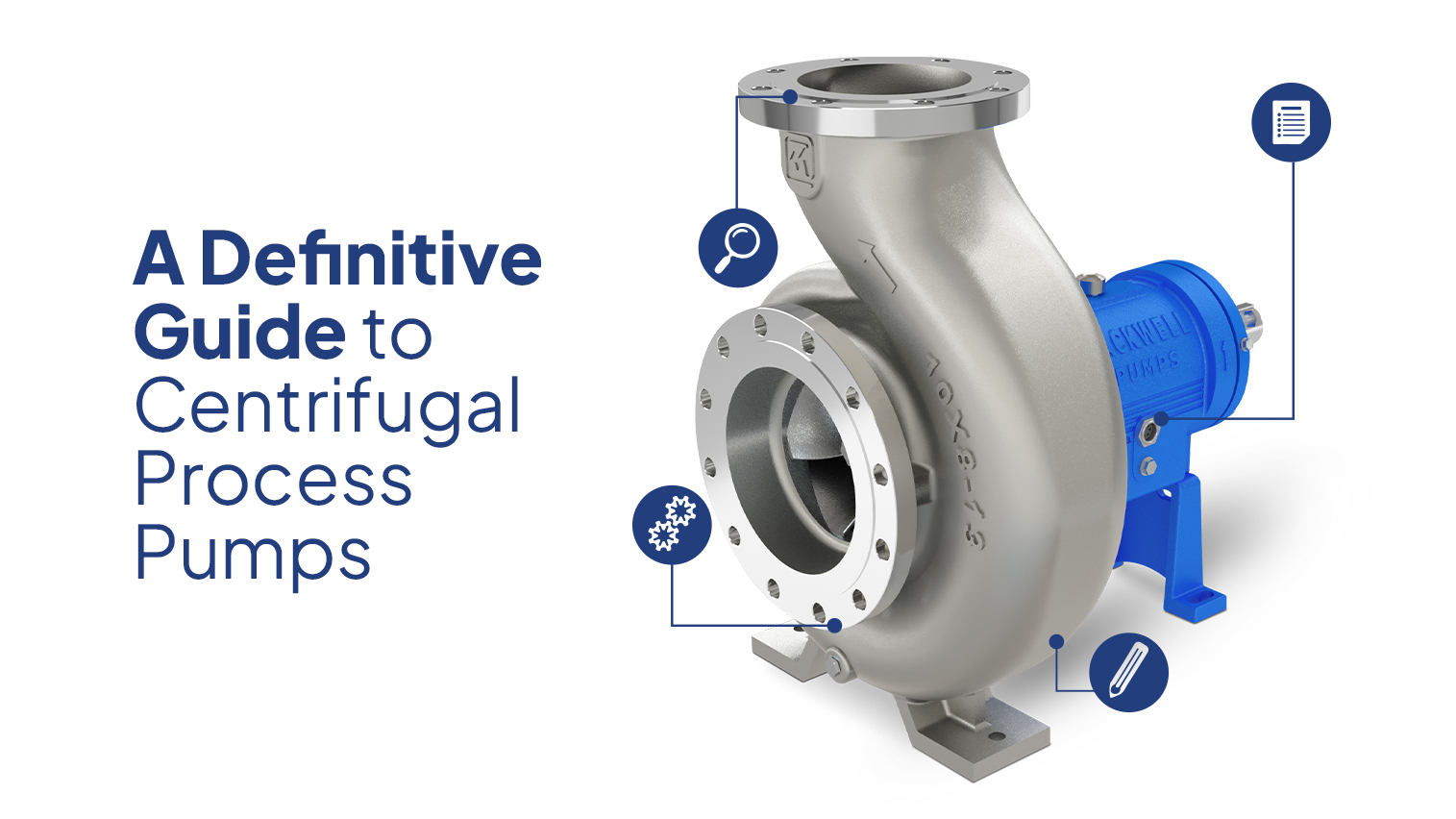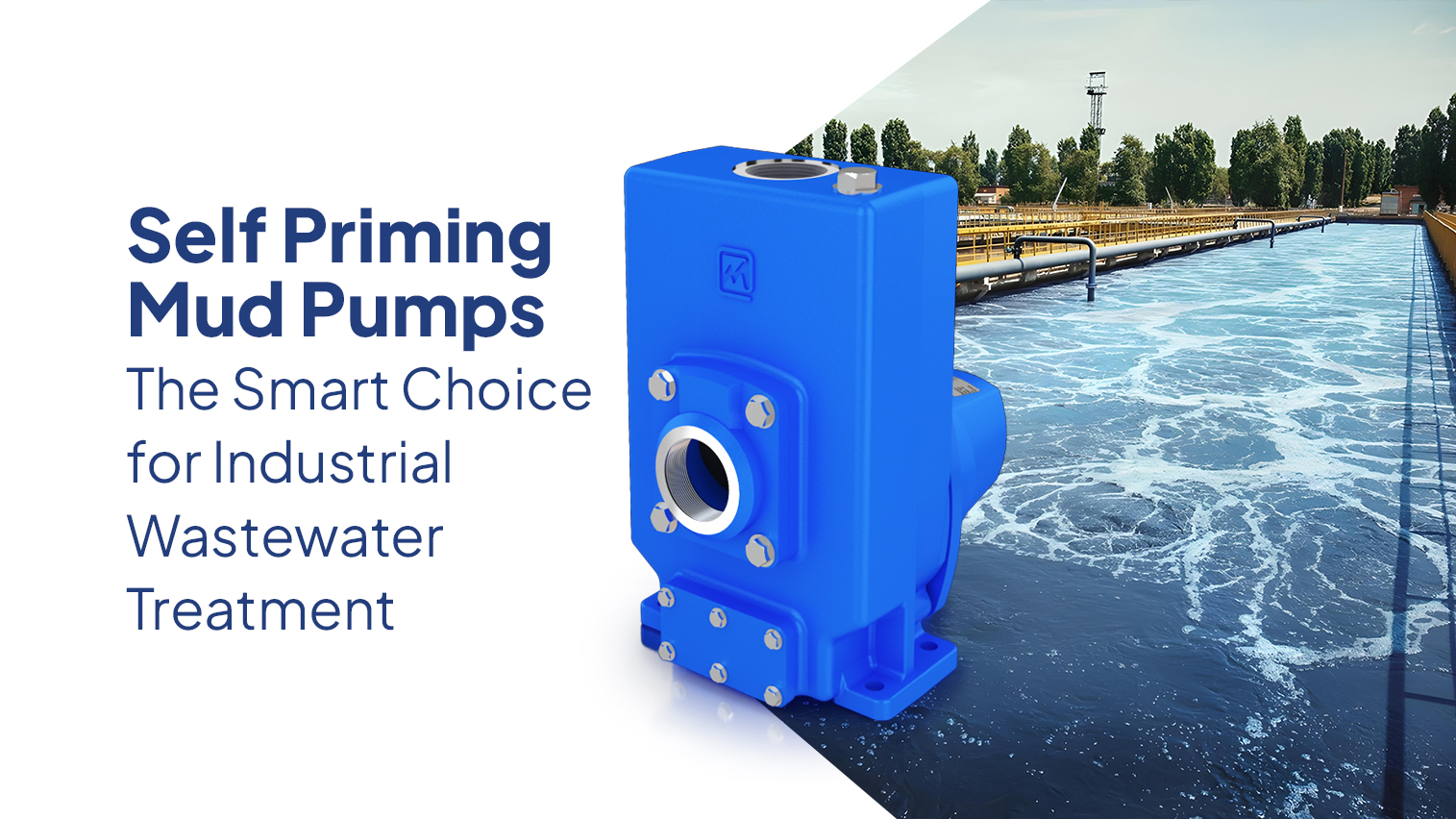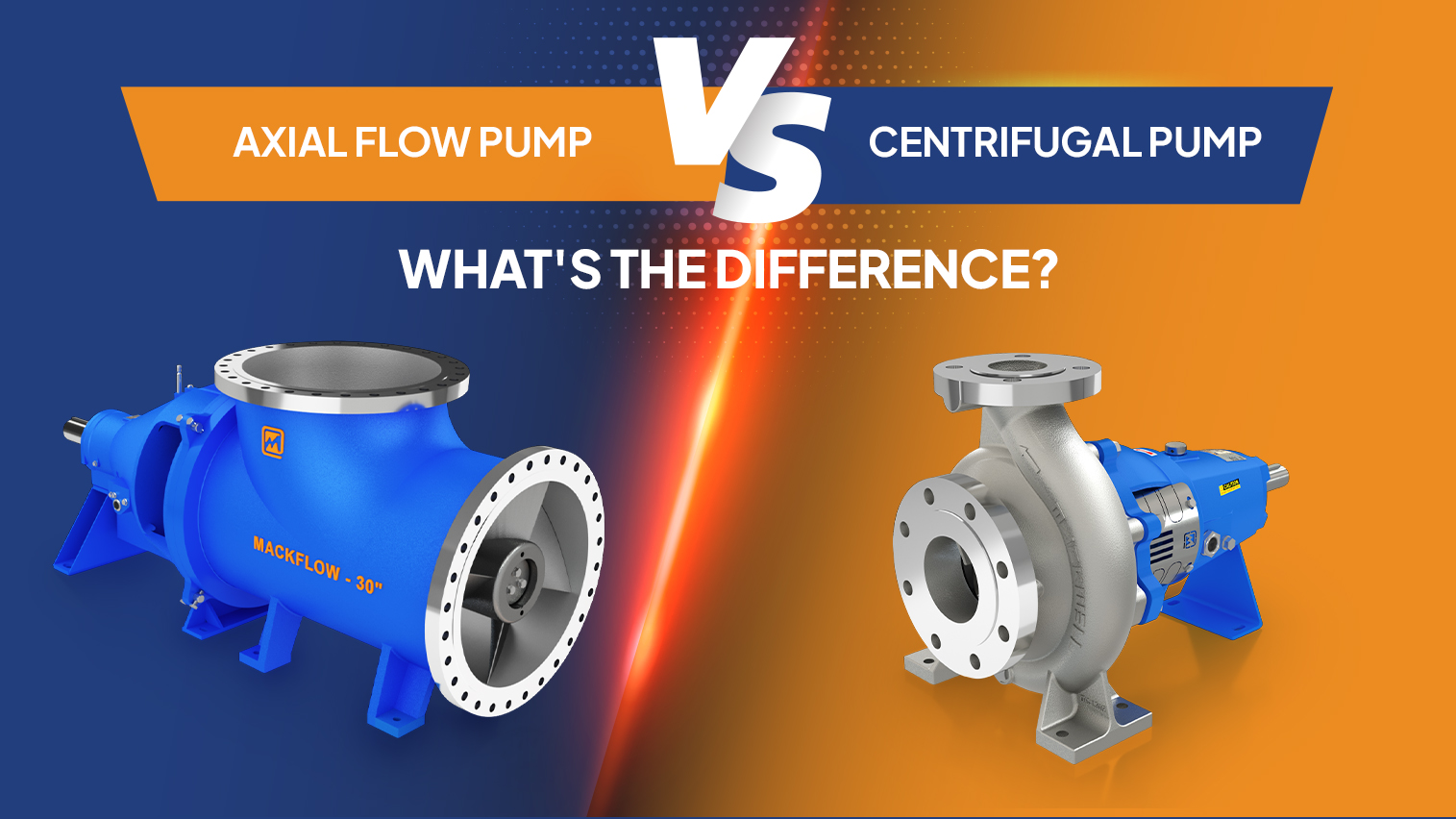A Definitive Guide to Centrifugal Process Pumps

Ever wondered how liquids move so effortlessly through pipes in industries like chemical plants, power stations, or even local water treatment facilities?
It’s the centrifugal pumps! These are powerful devices that convert mechanical energy from a motor into kinetic energy, driving the fluid through the pump and into the discharge pipe. They are the real heroes behind smooth operations in industries like chemicals, food and beverage, construction, and more because of their versatility, simplicity, and efficiency.
How does a Centrifugal Pump work?
They have three key parts:
- Impeller – Spinning blades that create motion in the liquid
- Casing – A stationary shell that directs the moving fluid towards the discharge pipe
- Shaft – Connects the impeller to the motor that keeps it moving
When the impeller spins, it creates centrifugal force, pushing the fluid from the centre to the outer edge. As it flows through the casing, it gains speed and pressure before exiting through the discharge pipe.
Choosing the Right Centrifugal Pumps
Different applications call for different pumps. Here are the key types.
- Single-stage Centrifugal Pumps – With one impeller, these pumps are perfect for low-pressure tasks like irrigation and drainage.
- Multi-stage Centrifugal Pumps – With multiple impellers, these pumps handle high pressure applications like water supply systems or fire protection.
- Axial flow Centrifugal Pumps – With impellers that rotate parallel to the pump axis, these pumps are ideal for high flow rate applications.
- Radial flow Centrifugal Pumps – With impellers that rotate perpendicular to the pump axis, these pumps are used in high pressure applications.
Understanding these types helps you pick the perfect pump for your needs.
Why Choose Centrifugal Pumps?
Advantages
- High efficiency
- Simple design
- Low maintenance
- Handles a variety of fluids
Disadvantages
- Limited suction power
- Need constant fluid supply
- Prone to clogging if not maintained
Maintenance Tips for Smooth Operations
Keeping your pump in the best shape is the key:
- Regular check for leaks, and worn-out impellers
- Clean the casing and lubricate the bearings
- Inspect the motor and electrical connections to ensure everything is working correctly
Common Issues and Fixes
- Cavitation: Caused by pressure drops, forming damaging bubbles
Solution: Control fluid temperature, check for leaks and use appropriate materials
- Low flow rate: Often caused by worn impellers
Solution: Inspect and clean the pump’s inlet and impeller; consider replacing worn components
- Overheating: Usually linked to poor lubrication or motor overload
Solution: Ensure proper lubrication, adequate cooling, and ventilation
Safety Precautions
When working with centrifugal pumps:
- Always wear protective gear like gloves and safety eyewear
- Turn off the power before maintenance or repairs
Mackwell Pumps is one of the leading centrifugal pump manufacturers in India. Whether you need top-quality pumps or expert guidance, we have got you covered.





